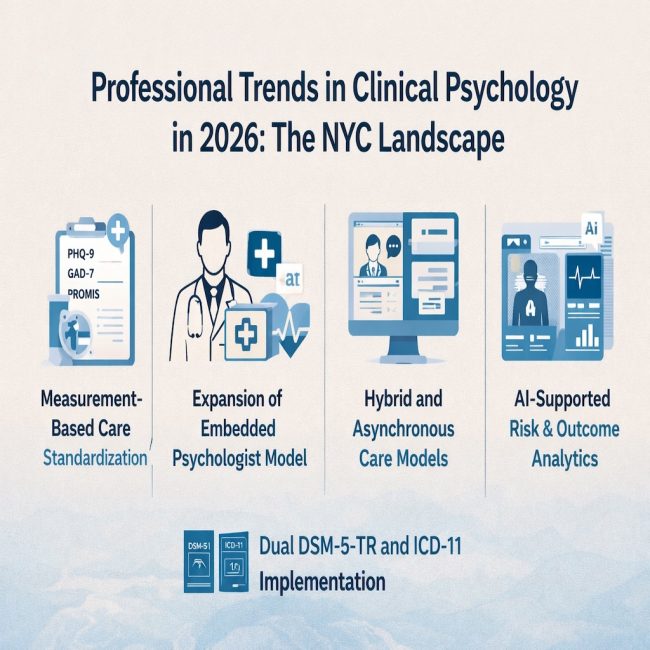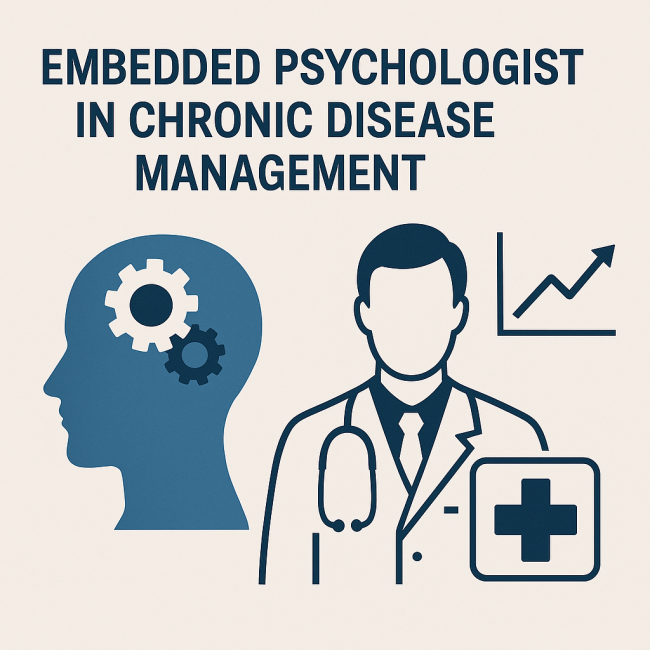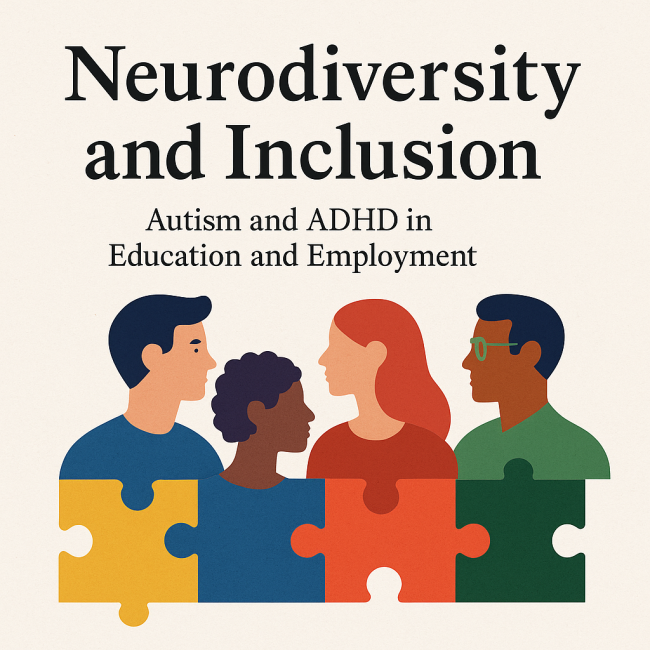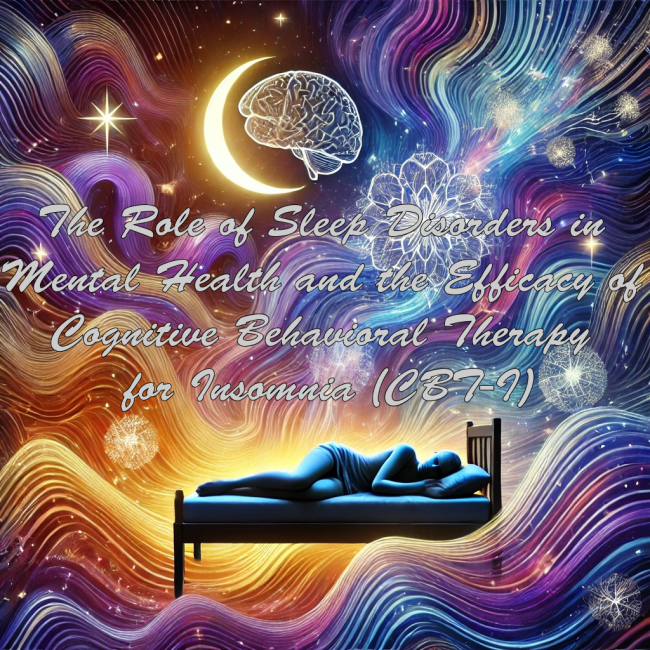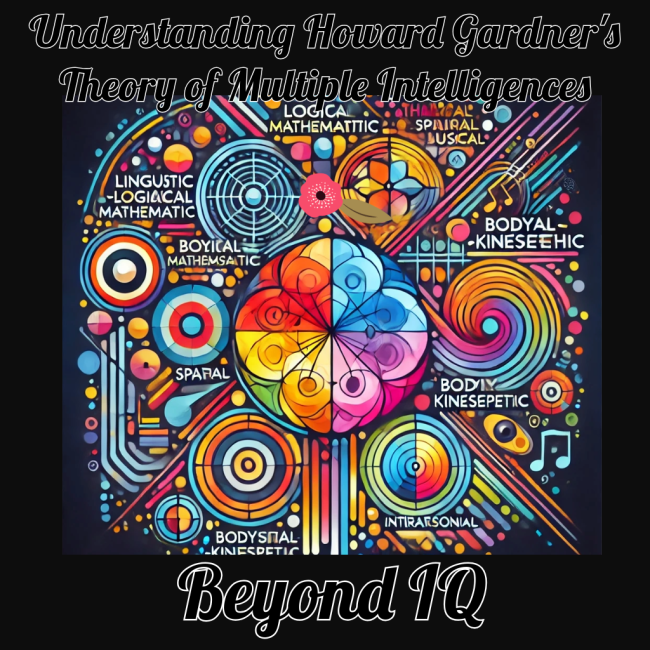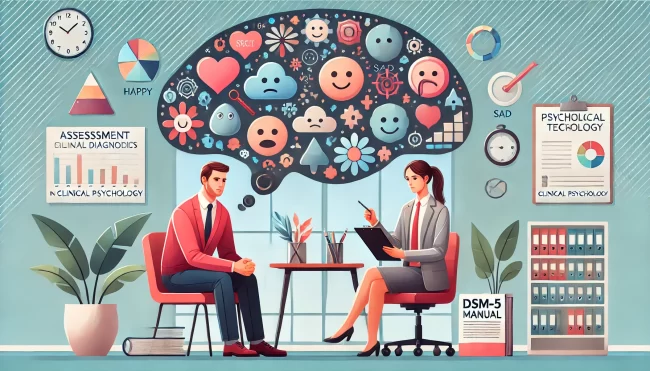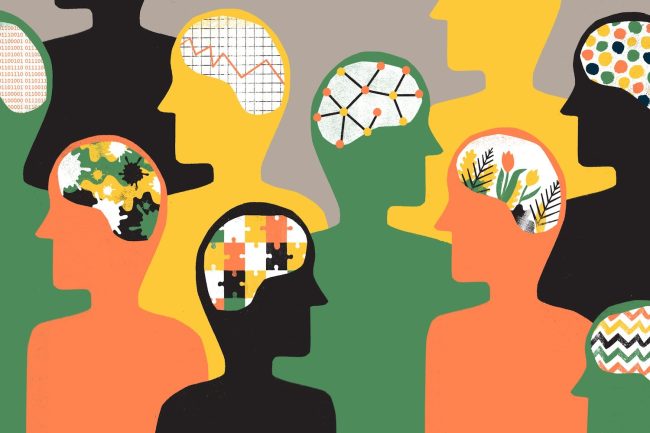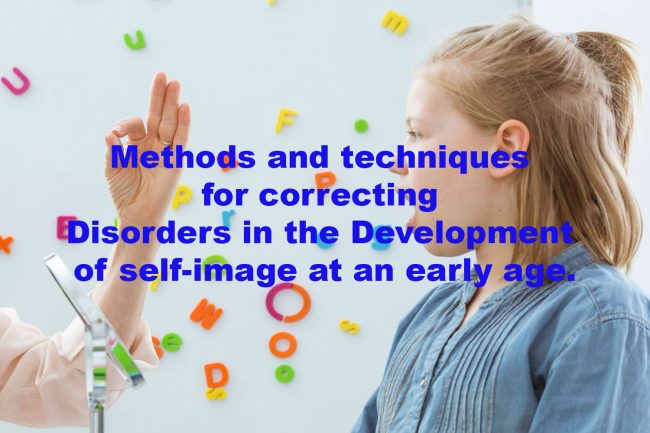Professional Trends in Clinical Psychology in 2026: The NYC Landscape
By 2026, New York City continues to function as a global reference point for advanced clinical psychology practice. The field is undergoing a structural shift characterized by data-driven care models, interdisciplinary integration, and expanded clinical accountability. Several professional trends are now clearly established across major healthcare systems: • Measurement-Based Care as a Clinical StandardValidated outcome…
